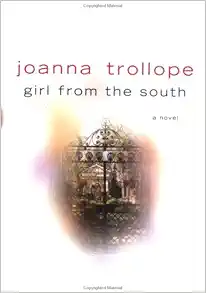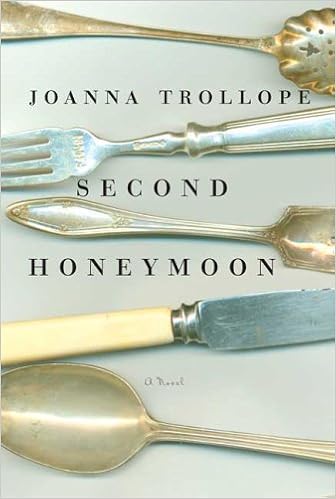
Description
From Publishers Weekly An admired English author of wryly intelligent family dramas, Trollope has never enjoyed a particularly wide American readership. This very likable novel, which features a protagonist from South Carolina involved with an English visitor, might change that. It even offers the notion that American family traditions, particularly Southern ones, offer a stability that contemporary English relationships often lack. Gillon Stokes is the odd girl out in her tradition-bound Charleston family, and when she goes to London on a typically whimsical impulse to pursue art research, she catches the eye of nature photographer Henry. When she casually invites him back home for a visit, Henry is charmed by the same folkways that Gillon finds so stifling, and he soon becomes so much part of her family that he begins turning their sense of themselves and each other upside down. Back in London, Henry's girlfriend, Tilly, is having problems keeping his friend William at bay, and discovers that she cares more than she expected she would about Henry's defection. The contrast between the casual, rootless Londoners and the rather rigid, assured Southerners is deliciously pointed, and Trollope (The Best of Friends, etc.) offers two splendid scenes of very different mothers and daughters coming to terms with their dissimilarities. This is subtle, delicate entertainment that skillfully avoids romantic clichx82 while offering a group of believably quirky characters learning to adjust to new maturity. National advertising. Copyright 2002 Cahners Business Information, Inc. From Library Journal Would that Trollope had stayed on her side of the pond. Instead, the prolific, popular English novelist (Marrying the Mistress) ricochets back and forth from Charleston, SC, to England, chronicling the relationships of several intertwined young people. The "girl from the South" is Gillon Stokes, who is in London working on an art exhibition catalog and trying to escape the constricted life her Southern upbringing imposes. Mind you, her mother, a psychiatrist in Charleston, doesn't quite fit the mold either. While in London, Gillon meets Henry Atkins, a discontented wildlife photographer on the brink of breaking up with his girlfriend. Shortly after Gillon returns to the South, Henry comes, too, is taken up by her family, and finds his true home, and love, there. More Maeve Binchy than Trollope, this rather mundane, predictable novel seems to be saying that "love isn't the answer." For those who expect the counterintuitively sympathetic characters of Trollope's previous novels and the unexpected denouements, this will be a disappointment. Fans will clamor for it, though. Francine Fialkoff, "Library Journal"Copyright 2002 Cahners Business Information, Inc. From Booklist Perhaps no stereotype is more enduring than that of the genteel southern woman with her "come hither" charm combined with a polite "come no further" restraint. Gillon Stokes feels like an oddity in her hometown of Charleston, South Carolina, where coquettish, house-proud behavior is preserved for its tradition of demure elegance and cultured mystique. Gillon's younger sister, Ashley, has assumed the role of southern damsel with the grace of a swan, and her grandmother, Sarah, is an expert on decorum and style. Already in her 30s, Gillon knows that her unruly hair, sparse wardrobe, and string of failed relationships will never meet the family's expectations, but she is unwilling to concede her individuality for their acceptance. When a London nature photographer sets his sights on capturing Charleston's landscape and Gillon's elusive heart, she is torn between love and completing a journey of self-discovery. Gillon is refreshingly aloof amidst all of the conciliatory lifestyles that surround hers. From Charleston to England, this novel is a foray into uncompromising individuality. Elsa Gaztambide Copyright © American Library Association. All rights reserved Vintage Trollope, fluidly and accessibly written as always, now with an American twist. -- Kirkus Reviews , April 15, 2002 Joanna Trollope, a member of the same family as Anthony Trollope and a #1 bestselling author in England, is the author of the novels Next of Kin , Marrying the Mistress , Other People's Children , The Best of Friends , and A Spanish Lover , as well as The Choir and The Rector's Wife , which were both adapted for Masterpiece Theatre. Writing as Caroline Harvey, she is also the author of the historical novels The Brass Dolphin , Legacy of Love , and A Second Legacy . Read more
Features & Highlights
- Defying the conventions of her Charleston family, Gillon spends a summer in London where she befriends insecure Tilly and her photographer boyfriend, Henry, who follows Gillon back home and captures the best of her home and family through his lens. 35,000 first printing.





